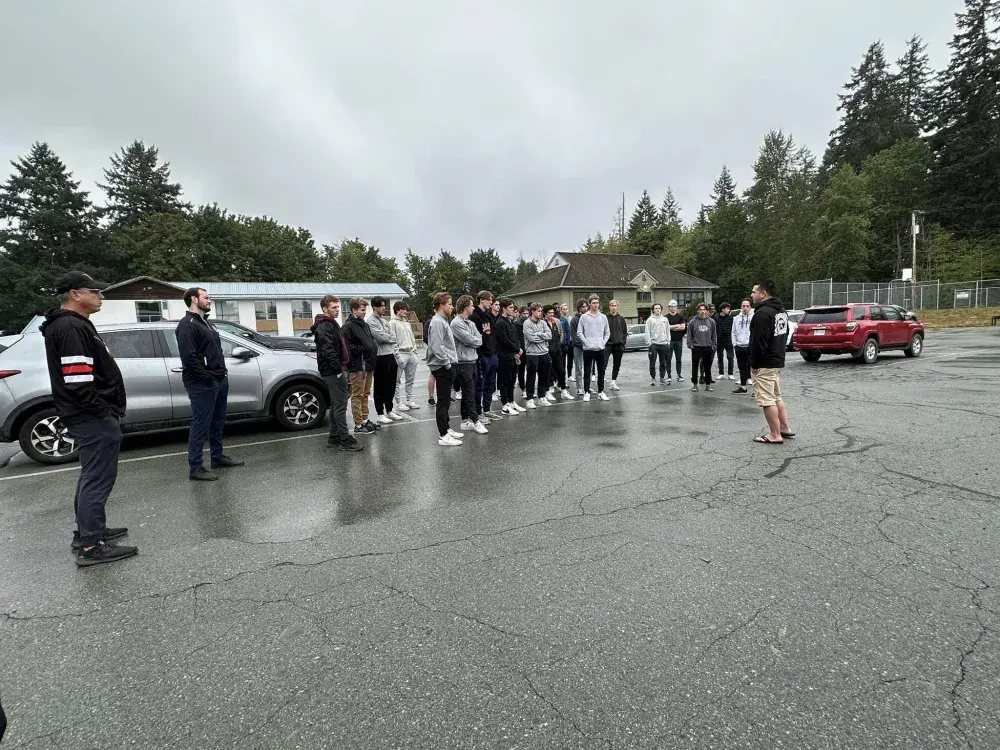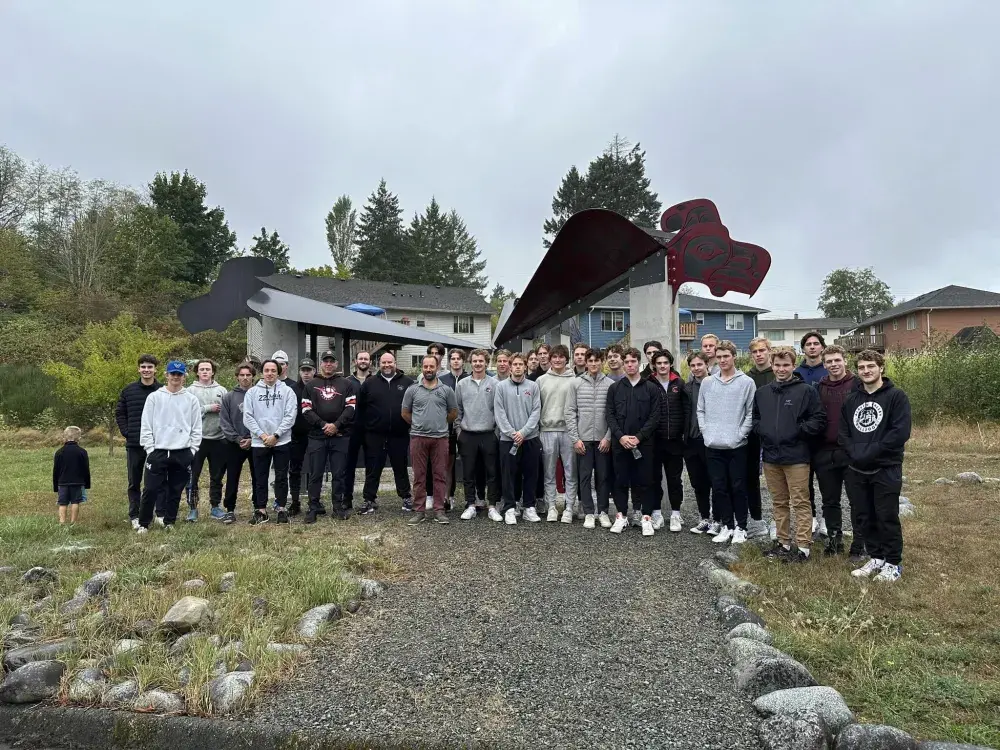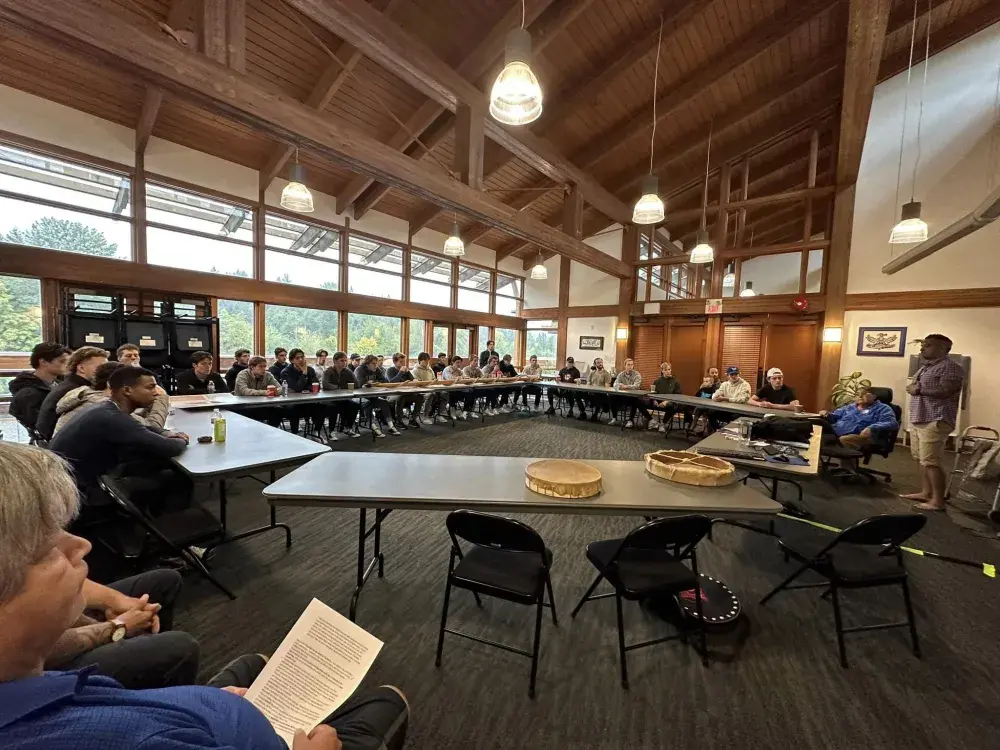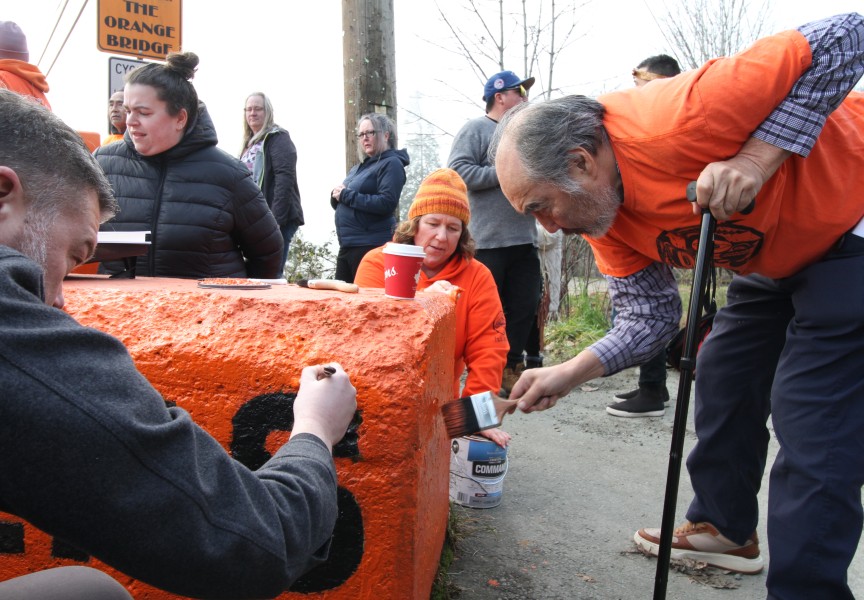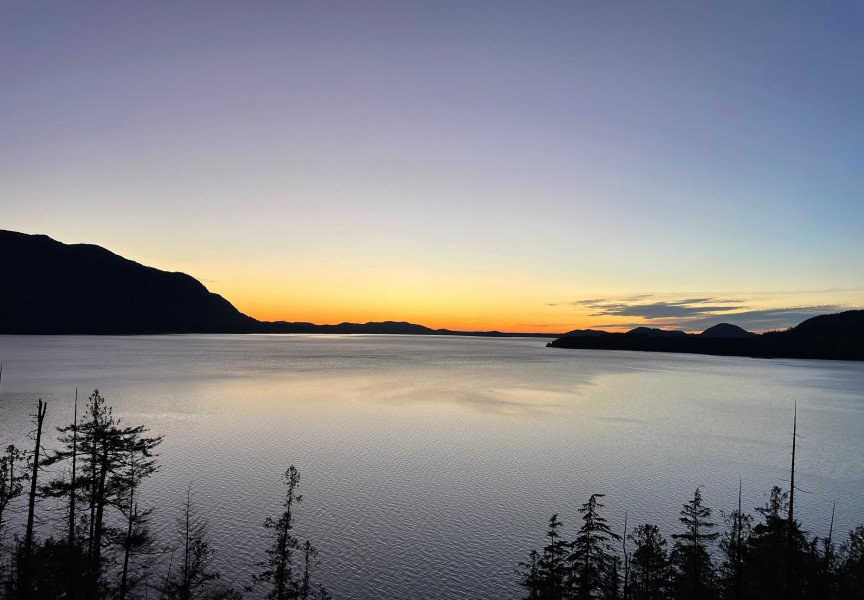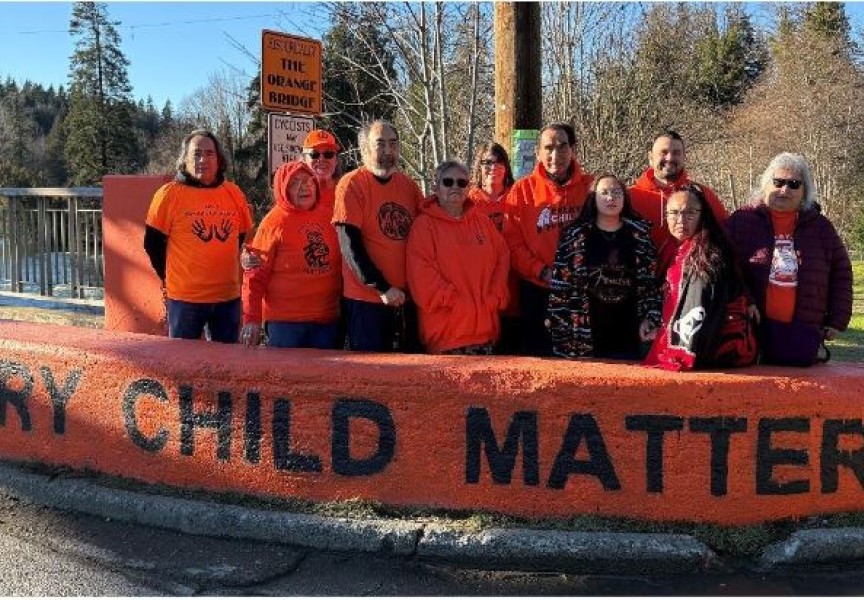As Sept. 30, Orange Shirt Day approaches, Tseshaht First Nation hosted the Alberni Valley Bulldogs and Junior B Port Alberni Bombers Hockey Club to teach them about their territory, values, principles, and the history of the Alberni Indian Residential School.
When Wacey Rabbitt of Kainai First Nation in Treaty Seven territory moved to Port Alberni three years ago, it was to start his career as he joined the Junior A Alberni Valley Bulldogs as assistant coach.
Roughly two weeks after the season started, Rabbitt told club President David Michaud and Joe Martin, head coach, that he would not be at practice, as he planned to participate in the Orange Shirt Day walk. He extended an invitation to the team to join him at the event.
“I showed up in the morning and our entire team was there,” said Rabbitt. “Every single player was there.”
For Rabbitt, who is the son and grandson of residential school survivors, it was emotional to feel the support of the entire team.
“I realized… what it was to be a Bulldog,” said Rabbitt. “I never have to be alone.”
Since then, Rabbitt moved on from the Alberni Valley Bulldogs to continue to pursue his coaching career, while the Junior A team has carried on the legacy that Rabbitt shared with them.
Over the last year the Bulldogs and Tseshaht have built a relationship and continue to work together, shared Ken Watts, Tseshaht’s elected chief councillor, in an email with Ha-Shilth-Sa.
Upon meetings with Watts, Michaud shared that it was proposed that the team come learn about the history of the First Nation and the Alberni Indian Residential School (AIRS) so they can learn more about “why” they are walking.
“We spent the morning up there and it was just an incredible experience for our guys,” said Michaud.
“[It was] an eye-opening experience, just to hear their experience,” said Nicholas Beneteau, captain for the Alberni Valley Bulldogs, who is originally from Windsor Ontario. “And even first, second-hand, just [what] some of their parents have gone through and grandparents.”
Watts said that some of the teachings shared were of Tseshaht’s history, such their creation story, values and principles, as well as the Indian Act and of the residential school. It was also shared with the players the work that Tseshaht continues to do as they move forward.
“I think it was really important for most of the guys on the team because a lot of them didn’t know anything about any of it,” said Beneteau. “It was only a few hours, but we covered a lot of information.”
“It is important they understand the territories of the local nations where they play as not only a sign of respect, but also to understand why we gather on September 30th,” wrote Watts. “[W]hile it’s a dark chapter in the history of Canada we need to continue to educate all Canadians including athletes on this history.”
The team was taken to the grounds of the former Alberni Indian Residential School, and then down to the river, where they were lucky enough to see a black bear snatch up a salmon.
“It was interesting to hear Ken talk about the history of the land, and how it's evolved over the years and trying to understand colonization and what that meant to the Tseshaht people,” said Michaud. “And help our guys sort of understand that a little bit too.”
For Michaud, he hopes that when the team participates in the Orange Shirt Day Walk “they have a deeper appreciation for the symbolism behind that walk, what it means for them to be a part of it and an understanding of the pain that's associated with it.”
“I hope they feel that they're a part of a healing journey as well,” he added.”[And] appreciate that they're a part of a much bigger community than maybe they understood they were before they decided they wanted to be a Bulldog.”
The players that make up the Alberni Valley Bulldogs are youth from “all over North America”, shared Michaud. And this year, the team has players from Ukraine and Finland.
“They all come here and play hockey and are a part of the community,” said Michaud. “We thought this would be a really neat way for them to learn about the community.”
“Once you learn this education, now, it's on you to tell the stories,” said Rabbitt, reflecting on the teachings of his own culture. “Our stories are getting out there and that’s part of reconciliation…in Canada.”

